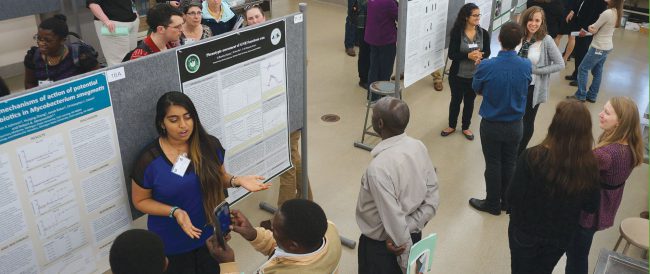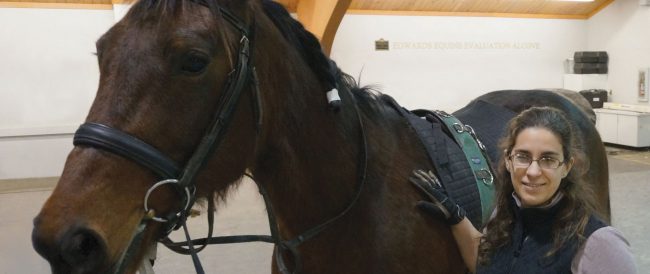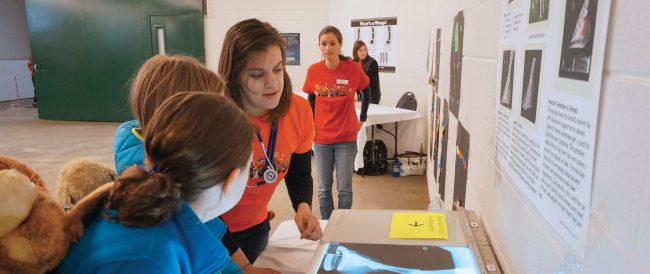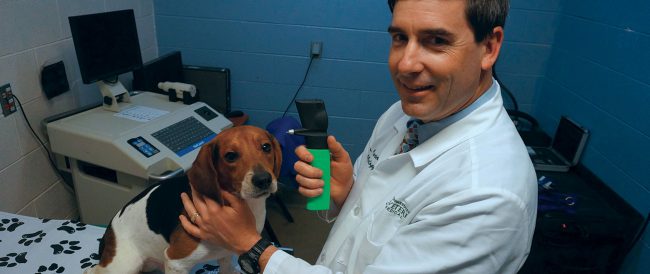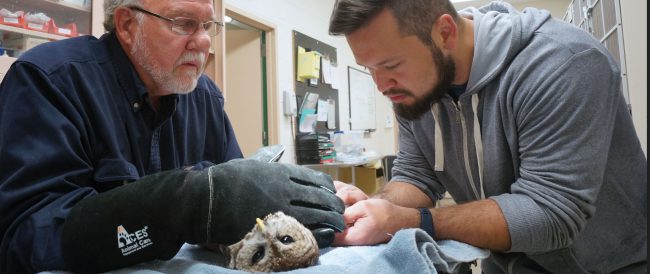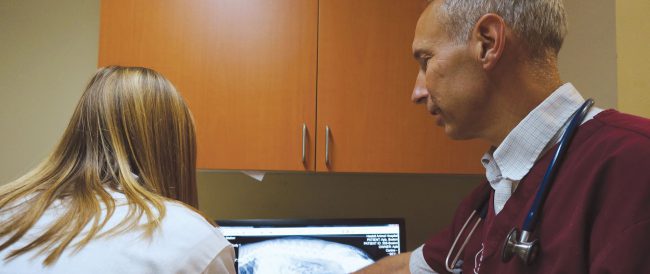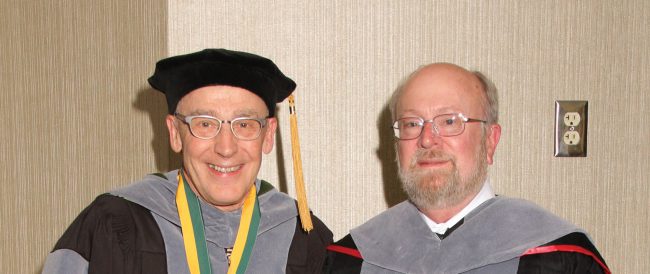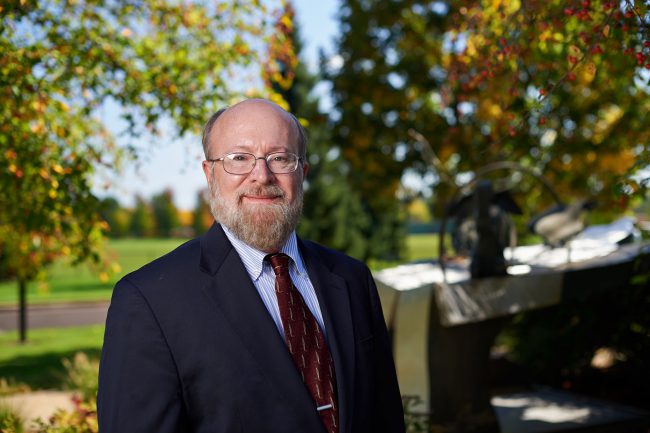 Read More
Read More
College Revitalizes Externship Program
Primary care is the clinical foundation for every veterinary medical student—or it should be. By embracing the rapid growth of the private practice market, the MSU College of Veterinary Medicine has made more real-world experience accessible to students at earlier points in their academic careers.
About 85 percent of MSU’s veterinary medical students graduate and go into primary care private practice. Today, these practices are common—much more so than they were 20 years ago. To keep its curriculum market-compatible, the College had to change.
Dr. Helene Pazak, director of Accreditation and Off-Campus Clinical Instruction, has led the development of the College’s Primary Care Externship Program for small animal medicine. The updates she and her team have made empower students to enroll in primary care clinical rotations sooner, more often, and with more options and geographic flexibility.
While multifunctional, these updates have one common, vital objective—building a stronger and more diverse foundation for students earlier in their clinical learning.
“I was glad to get such a high number of cases, as well as the opinions and experience of several veterinarians. The staff at Haslett made me feel like a valued member of the team. Their encouragement shaped my progress and will stick with me as I continue my education." — Kaylee Kreft
Following Suit
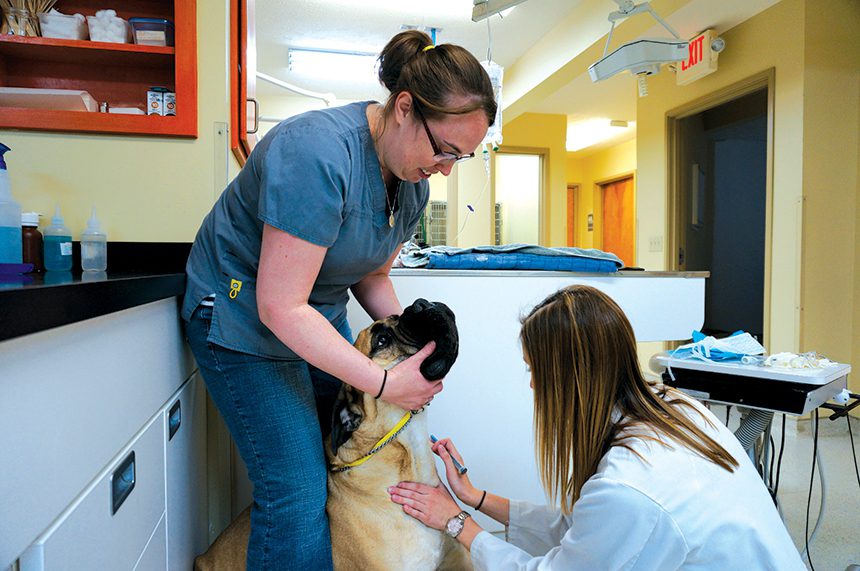
The Primary Care Externship Program is not the first of its kind. For more than 20 years, the College’s Department of Large Animal Clinical Sciences has offered the Practice-Based Ambulatory Program (PBAP), which matches veterinary students with equine or food animal practices for externships. Students maintain daily case logs while they focus on building clinical skills and objective achievements in animal care and practice management settings. Students also submit a resume and cover letter to their host practitioner to practice applying for jobs and responding to feedback.
“PBAP has allowed us to retain and enhance the value of on-site learning for our students,” says Dr. Dan Grooms, Large Animal department chair. “Our program has served as a model for similar programs at other universities around the country, especially those without teaching hospitals.”
Now, PBAP’s success has crossed over to small animal primary care. During the planning process, Pazak took a close look at the protocols that PBAP uses and fine-tuned them to round out the natural migration to a primary care, off-campus experience.
The techniques that Pazak sourced from PBAP leapfrogged her planning years forward—an opportunity she had as a faculty member at an innovative college of veterinary medicine.
The Program Development
Prior to spring of 2017, students could only enroll in one on-campus primary care clinical rotation. Now, students can select up to two primary care rotations, one on-campus and one off-campus, and there’s a pre-selected list of practices from which they may choose.
Creating this option required teamwork from inside and outside the College. The College began recruiting private practices in 2016 as part of its effort to produce career-ready, high-value graduates. Practices pre-enrolled to be included as options for students looking for off-campus externships. Once approved, each practice completed a profile used to help students select their preferred practices. Students also nominated practices of their own choosing, including those out-of-state, a feature that may allow some students to visit home while completing a primary care rotation.
Significantly increasing the number of externship options accomplished two things—students were able to complete their primary care rotations sooner, gaining basic skills earlier in their educations, and students were able to customize their degree tracks with greater flexibility, increasing the value of their educations without compromising the program’s integrity.
Regardless of location or timing, the parameters for each off-campus rotation are the same. Students keep a daily log of their activities, check-in with the externship team on Fridays, and set their goals for the following week. During their externships, students may shadow all or some appointments, gaining more hands-on responsibilities as time goes on. They perform various general-medicine skills as they learn about realistic time management in private practice.
Third-year student Kaylee Kreft enrolled in a primary care externship at Haslett Animal Hospital in Haslett, Michigan. She says that experience helped her learn about the pace of a busy, multi-clinician small animal practice.
“I was glad to get such a high number of cases, as well as the opinions and experience of several veterinarians,” says Kreft. “The staff at Haslett made me feel like a valued member of the team. Their encouragement shaped my progress and will stick with me as I continue my education.”
Passing the Torch
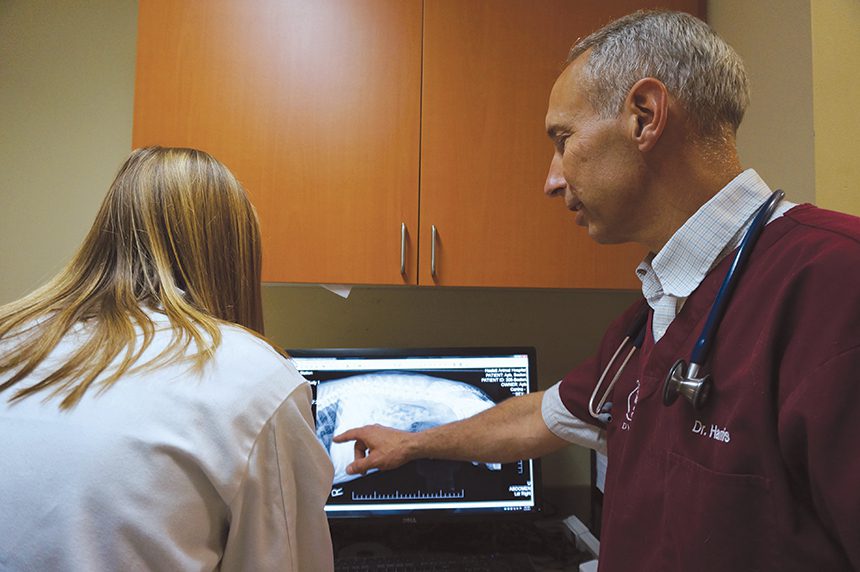
Designing the new program was only half the battle. Pazak met with a planning committee comprised of alumni veterinarians, who not only helped structure the program, but pushed for continued quality and excellence from the College.
“When you don’t have formal teaching experience, it’s sometimes hard to picture yourself as a mentor,” says Pazak. “There were some concerns from the veterinarians about what qualifies them to take on these students. But the fact is that somebody did it for all of us. At one point, you’re a rookie, and you have to jump in and learn from those who know and can do.”
Most veterinarians, whether their education led them to private practice, government, residency, USDA, industry, or something else, were mentored early on by primary care clinicians. This hands-on experience of learning by doing is key to the success of each professional. To increase students’ access to mentors, the College partnered with veterinary alumni. The response was explosive. During the 2017 spring semester, 25 students participated in off-site small animal primary care clinical rotations.
“The alumni of the profession have been amazingly generous in giving back the investment of time,” says Pazak.
For more information about the College’s Primary Care Externship Program, or to enroll your practice, contact Dr. Helene Pazak at pazak@cvm.msu.edu.




